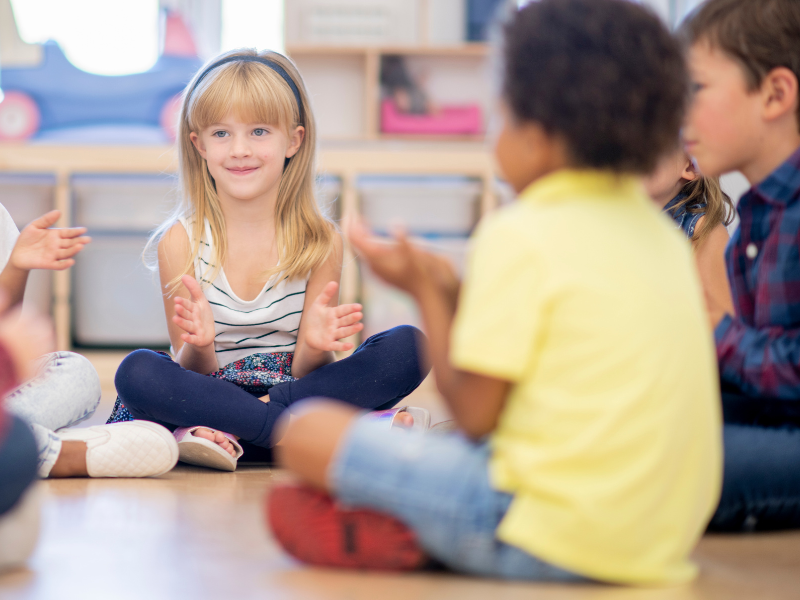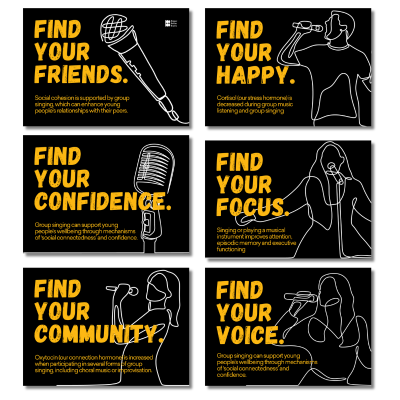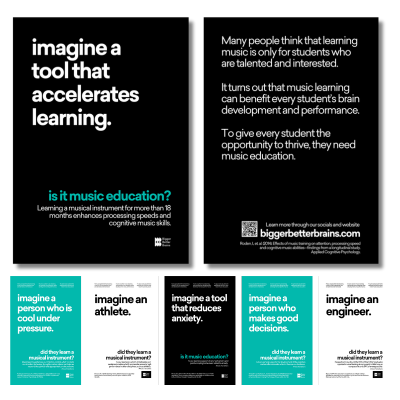
Research Updates

Here at Bigger Better Brains we believe that through educating yourself, you can then educate and affect positive change in your community.
With all of the research in the field of neuromusical science, our BBB Research section serves as a content hub for you. We regularly share findings and break down the latest research to educate and inspire discussion. We hope you enjoy this page on our website and share BBB news with your colleagues, parents and students.
- Advocacy
- Ageing
- Aging
- Attention
- Auditory Processing
- Cognitive Health
- Communication
- Community
- Dyslexia, Autism & ADHD
- Early Childhood
- Executive Function
- Fireworks
- Impulse Control
- Language & Literacy
- Memory
- Music Learning
- Music Listening
- Neural Development
- Parents
- Personality
- Productivity
- Prosocial Behaviour
- Prosody
- Reading
- Rehabilitation
- Research Bites
- Research Methods
- Research Quick Reads
- Reward
- Singing
- Social Skills
- Video
- Wellbeing & Therapy
- Working Memory
Music Learning Helps Learning Difficulties
The ‘Music Learning Helps Learning Difficulties’ series consists of three information documents to provide you with the research behind how music learning helps a particular area of learning.
What is working memory and how might music learning help?
This article is a great explanation of working memory and the different ways it is affected by disorders such as dyslexia, auditory processing disorder and ADHD.
How does drumming assist school children diagnosed with autism?
In this study, they found that 10 weeks of rock drum kit improved dexterity, rhythm, timing and the ability to maintain attention for children with autism.
Music fine tunes the autistic brain!
Autism research, as well as ADHD, dyslexia and auditory processing disorder research, are using music processing and music learning as a tool to better understand each condition.
Dyslexia is a hearing issue, not a reading issue!
Prof Usha Goswami found that “dyslexia is not caused by children reading words incorrectly, but instead, by their inability to hear the rhythm of words when they are being spoken.”
Rhythm and dyslexia
Have you ever wondered what the connection between music and dyslexia might be? Researchers in Italy have provided a good description of the connection.
Helping ADHD students through music learning
This summary could be very helpful for understanding the learning challenges faced by ADHD students in your music ensemble or classroom and also give you ideas on specific activities for focus or to help improve their skills.
Music learning is a full brain workout!
The different types of connectivity are ultimately what makes every human unique. For children and adults with autism, it has been identified that the auditory and visual areas of their brains are highly connected.
Neural Biomarkers for Dyslexia, ADHD, and ADD
The researchers built on top of the research that found that music learning could improve these “traffic black spots”. Hence, they used a music learning intervention to see if they could track changes in the auditory cortex and hemispheric activation in children with Dyslexia, ADHD and ADD.
Rhythm can predict risk of language disorders
Here is a fascinating new theoretical paper about the relationship between rhythm and language abilities. A theoretical study is one that brings together all the relevant current research and puts forward a theory of, in this case, how two concepts may be connected.
Dyslexia, beta waves and rhythm processing
Dyslexia, beta waves and rhythm processing – that is a mouthful of tricky words. But in this new study, they are all connected and could reveal new understandings about the brain mechanisms that cause dyslexia.
Musical activities improve social communication skills for autistic children
In this study at the University of Montreal, 51 children with ASD ages 6 to 12 were randomly assigned to participate in a clinical trial involving three months of either a music-based, or a play therapy intervention.
Music therapy and Autism - Dr. Summa-Chadwick
Music learning has so many amazing benefits for students, but did you know that music learning is often used as a therapy tool for children with autism?
A Biological Marker of Dyslexia
For quite some time, researchers have been trying to understand the brain mechanisms that result in the condition known as dyslexia. It is a complex puzzle, the kind that researchers love!























